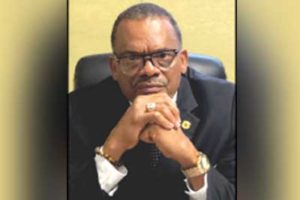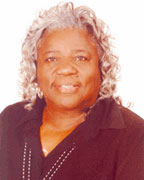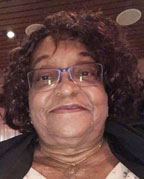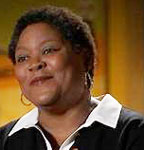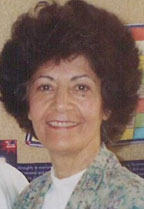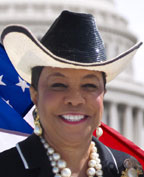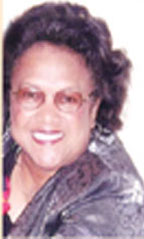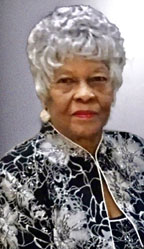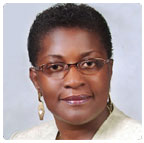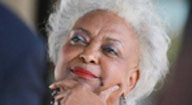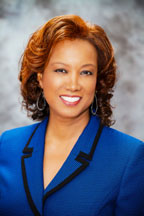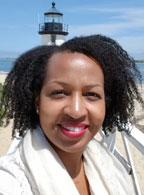It is with profound respect and gratitude that I write this lead-in into the remarkable women who have been on the forefront of making things happen here in America. I also understand that even though men play a great part in structuring what occurs, the women, especially the Black woman, were the places where nourishments sprang. Women of all colors played an intricate part in making the fabric of this Country wearable and beautiful ;however, Black women have had to stitch together a quilt made from hand-me-downs and woven them into a miracle blanket to protect all of us from the harshness of a racist and unbalanced system. The Black woman not only gave meaning to life where babies nursed from to gain their strength but also gave to the world their fortitude and the will power to march on. The strength of the Black woman is needed now more than ever to not only bring the country together but to reunite Black families in Black love. Yes, women suffrage was a movement; however, the Black woman’s movement is life. And to those Black women and women whose name may not appear in the annals of history, know that your impressions, your footprints are placed in the hearts and minds of those who cherish you. Carry on in your role as life givers.
LOCAL WOMAN AND WOMAN SUFFRAGE
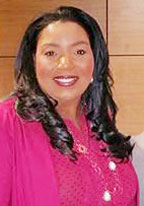 By: Commissioner Dr. Barbara Sharief
By: Commissioner Dr. Barbara Sharief
For over 100 years women have struggled with gaining equal rights and being recognized as having equal strength in their voting powers. It is so hard to believe that 100 years has passed, and we are still addressing the same issues that we faced during that time. Today women represent 51% of America, yet we have never had a woman as President. As I reflect on this fact, the reason is clear because we have yet to gain the same level of respect and recognition as men. Take a walk along the hallway in Broward County on your way to the Commission office. There is a wall of Chairs and Mayors. There are only 2 Black women on that wall: Sylvia Pottier, the first African American female Chair of Broward County and myself, the first African American female Mayor of Broward. This has only occurred twice in Broward’s over 100 years.
We continue to fight for democracy in elections for women candidates, childcare, women’s healthcare, equal opportunity for education, and equal pay. The road to election victory is always harder for women than men. I use my personal experiences as an example, breaking down the barriers in the local democratic parties’ good old boys club seemed an insurmountable task when I first began. I self- funded my campaigns and fought twice as hard to overcome the hurdles I faced as a female candidate. As a woman it’s not just good enough to be a good candidate with a solid platform – you have to be great! I have been in elected office for 12 years now and I continue to see the same issues of my grandmother and great grandmother’s yesterday. I lost my great grandmother at age 103 years old, I lost my grandmother at age 87 years old and both were staunch advocates for respecting their right to vote. Both used to talk about how many people died for us to have our voices heard, not just women but blacks also. As we come closer to election day, we must remember what suffrage means and exercise our right to vote. It is not just a right; it is a privilege one that we should not take for granted. Get up and vote like your life depends on it because it does!
Understanding the importance of voting and to be a leader especially, women leaders. I learned that lesson well when I opened up the first preschool in Broward County in 1954, Universal Kindergarten in Deerfield. I understood the importance of what being a woman and being a leader was. Many women brought their kids to our school which allowed them to work and take care of their families. The first time I ran for office I was unsuccessful, but two years later in 1976 I became the first female city commissioner in Deerfield. Because many of the families whose children were in our school voted for me. A lot of those families were headed by women and because we took care of their children, they believed in me and voted for me and had others to do the same. Black women voters are extremely important; I am a beneficiary of this. In 1986, I was appointed by Governor Lawton Charles to the Broward County Commission 12 years until 1998. I was reelected because of the influence and power of Black women voters and others. As a Trailblazer, many professional Black women elected and appointed across this county in all municipalities as well as judges and attorneys are because someone paved the way for me and I was able to pave the way for other Black women. The City Of Lauderhill is run by Black women. Had it not been for those Black women before us, we could not have done what we were allowed to do because of the support of Black women and their power to influence voters.
Undeniably, the Women’s Suffrage Movement has had a tremendous effect on women in America. Although the vote was their major consequence, many other avenues were opened for women to gain their entrance into the mainstream of American life. The workforce, educational opportunities, and political equality, and social reforms are but a few other results that stemmed from the Movement. Many women became emboldened since the passage of the 19th Amendment and have created space of their own, as well as in the mainstream.
Local Black women have made their influence felt, and their voices heard in the mainstream throughout various involvements. In creating space of their own, we note in particular how they strengthen their homes and are staunch defenders of their children’s education. These two elements allow for Black women to also enjoy successful careers of various choices, and to seek out those careers that offer equal pay for equal work. Most notably, Black women are seen in Board Rooms, Court rooms, and Classrooms of high distinction.
Although the Women’s Suffrage Movement was begun in the mid-19th century, this Movement is still alive today though not referred to as such. Black women, of necessity, must stay involved if we intend to have a seat at the table. There is much more to be gained and we must be there.
August 16, 2020 marked 100 years since the passage of the 19th Amendment giving women the right to vote. Unfortunately even though Black women marched and suffered to for the right to vote, it was not until 1965 when they were provided inclusion under the amendment.
Since 1965 and despite poll taxes and other types of suppression, Black women have been voting and running for office. This 2020 election cycle locally has shown that trend. Black women have run and are running for mayor, judge, state legislature and congress. To cap it off, a woman of color is now running for the Vice Presidency of the United States. We have truly come a long way baby!
It’s really amazing that America is celebrating the 100th year of Women’s Suffrage. Only white women, because African American women had to wait forty-five years before they could vote. This struggle began hundreds of years ago in the 1700s. Elizabeth Stanton, Susan B. Anthony and Lucy stone were among the determined and courageous few, who launched a movement that brought the suffrage to reality. Later it was Fanny Lou Hamer, Ella Baker and Diane Nash; black Suffragettes, who took up that struggle for all which brought about the Voting Rights Act of 1965.
It is debatable if ignorance or prejudice should be blamed for their lack of rights and representation since ignorance breeds prejudice, and prejudice breeds ignorance.
Genesis 1:27, in Christianity’s highly respected and most holy book, the Bible, says “So God created man in his own image, in the image of God he created them; male and female he created them”. These spiritual teachings were given to humanity thousands of years ago, yet
women are still waiting for their rightful place in the world. Equal rights to their male
counterpart.
I was raised in the Baha’i Faith with the view that women and men have always been equal!
“like a bird with two wings, having equal strength, is able to flap its wings and fly. However, if one wing is strong while the other, weakened or restrained, that bird cannot fly.”
The goal here is not to have women take on masculine roles but to introduce the feminine qualities of Lady Justice into the laws, the religious and social discourse of society.
Due to racial disparities and injustice, we seem to have fallen back to the pre suffragette era because voting rights and voter suppression are again under attack and continues to be one of the most pressing issues of our time as it erodes true democracy in America!
I do believe the time has come to dismantle systemic racism and gender bias as it corrupts the soul of our country and its citizens while hindering the great gift of peace and justice for all.
Thanks to my friends Munirah Daniel and Heather Messias for their assistance with this paper.
Another lesson in overcoming sexism,
Another lesson in overcoming racism.
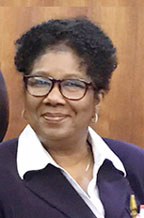 Bertha W. Henry,
Bertha W. Henry,
Broward County Administrator
While not initially embraced as an integral part of the suffrage movement, it soon became clear that Black Women’s courage, tenacity and spiritualism were necessary ingredients to change the conscience of a nation as it struggled to become a more perfect union. The suffrage movement, as does many movements around the world, once again affirmed that “right” has no gender or skin color. The soul of a nation is cradled in its women. We nurture, we protect, we inspire and aspire to a higher purpose. Absent the voice and actions of women, we cannot achieve a society that is just and uplifted to achieve greatness.
This year there is a definite sense of urgency to exercise the constitutional right to vote guaranteed to women 100 years ago. Although participation in the Women’s Suffrage Movement by African American women has often gone unrecognized, it is well documented that the 22 bold founders of Delta Sigma Theta Sorority, Inc. were actively involved. The Deltas participated in the Women’s Suffrage Parade held on March 3, 1913 in support of a constitutional amendment that guaranteed women the right to vote. To this day, local chapters Delta Sigma Theta throughout this nation, continue to play a critical role in women’s suffrage and voter awareness and education.
African American women have been committed to gaining the right to vote for well over 100 years, but only recently have we begun to receive credit and recognition for our voting power.
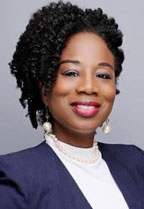 Attorney Burnadette Norris-Weeks
Attorney Burnadette Norris-Weeks
Black women were marginalized in the suffrage movement. Although they performed a lot of the grass roots efforts and helped to change public opinion, the role of Black women has largely been downplayed in American history. They did not lead the civil rights organizations and were not often seen as the face of the suffrage movement. However, the contributions of their role in the suffrage movement is well documented from the work of powerful women such as Harriet Tubman, Mary Church Terrell and Frances Ellen Watkins Harper. Black women also played a huge role in the passage of the 15th Amendment (gave Black men the right to vote) and in the passage of the 19th Amendment (gave women the right to vote). By and large, the mainstream suffrage moment did not address the challenges faced by Black women due to their sex or race. Black women were often asked to march separately from white women in suffrage parades. As a result of so many challenges unique to Black women, they established their own organizations to more boldly address issues such a negative stereotypes, harassment, unequal access to jobs, housing, and education. The relevance of these issues for Black women is still prevalent today and highlights the need for organizations such as the Women of Color Empowerment Institute, Inc.
“Black women played a significant role in the suffrage movement and saw it as an effort to support the Black freedom movement. Their hard work, however, often was pushed to the sidelines or ignored by white women, particularly in southern states like Florida, who received most of the limelight and credit for the passage of the 19th amendment. The fight will never end, but we have made a lot of progress with the election of so many women in Congress and to local and state legislatures across the nation. Today, everyone says that black women carry the Democratic party on their shoulders and it’s true. We are the champions of voter education and registration and champions of getting out the vote. I have scars on my back from years of fighting for equal rights, civil rights, and just to be recognized in the room. But I’m here, and I have a voice. I had to fight to get that voice, though, and to even be able to speak. Because I have fought so hard, my daughters and my granddaughter will be able to navigate the world more easily.”
WOMEN SHAPE THE NATION
Passage of the 19th Amendment to the US Constitution, August 18, 1920, provided for women suffrage; thus, movements for all rights and responsibilities of citizenship followed. Women have been driving forces in decision making, writing laws and making rules that affect our lives for centuries. Although not necessarily on the military battlefield, women have fought for voting rights, equal pay, equal jobs, equal civil rights as well as racial equality. The fight continues.
Thanks to women as Lucretia Mott, Frances Harper, Ida B. Wells, Eleanor Roosevelt, Mary McLeod Bethune, Sojourner Truth and Harriet Tubman, to name a few, for paving the way for women suffrage and rights.
Broward County, Florida has been on the leading edge of women’s movements for many years. Women have played impactful roles in progressions of Broward. Mrs. Eula John-son, for example, fought to desegregate Fort Lauderdale beach in the early 1960’s; women have served as supervisors of election which included two African American women–Meriam Oliphant and Brenda Snipes. The chief executive officer Broward County, Bertha Henry, directs day-to-day functions of Broward County government; in 1956. Susie C. Holley opened a day care center, Susie C. Holley Cradle Nursery, Inc. for children–enabling mothers to work.
African American women continually press forward with women suffrage and movements involving women of all ages to achieve rights and responsibilities in entrepreneurship, leadership and professional development. The Women of Color Empowerment Institute, Inc., organized and developed by CEO Bernadette Norris-Weeks, aims to enhance and expand leadership and professional development by and for women,
Women typically display a strengths in a variety of areas that include decision making, handling of day-to-day planning, teaching, guiding, budgeting and communicating. Although necessary for business and employment, these traits are always utilized in family and household settings. No longer should women be submissive, sub-servant and perform menial tasks. We must continue to move forward and help shape the nation.
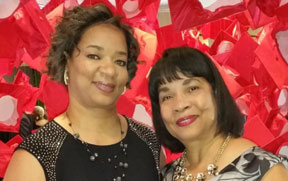 Jacqueline Taylor and Deborah Mizell
Jacqueline Taylor and Deborah Mizell
“As a Black woman that raised two daughters, I decided to ask one of my daughters, Jackie, about her thoughts on the Women’s Suffrage movement. She wrote, “In the early 1900’s the Women’s Suffrage movement was finally adopted and passed into law. Obstacles including poll taxes, literacy test and other trivial maneuvers continued to disenfranchise Black women and men who were not allowed the full privilege of voting until the Voting Rights Act of 1965.
Though the name of many women’s movements would imply that laws and society advancements applied to all women, as with most things it left behind Black women…Including the country’s recent women’s movements.” I was very impressed with her answer.
We both agreed, that today, Black women are the majority of the Black vote and the Democratic vote. We often hear the message to bring someone to the voting polls when we go to vote. We suggest that we look at another demographic…Black men! We would like to see Black women bring the Black men in their life to the polls. We can all celebrate and exercise the privilege that our ancestors fought for and then waited to be given. It is our responsibility to remember their fight and honor the reason they fought! The Women’s Suffrage movement was not for us, but we must take advantage of the door it opened for all of us, Black women and men.”
Mt. Hermon A.M.E. Church Historical Museum Historian and Curator
Women’s suffrage begun in the mid – 19th century approximately 1830. Ida B. Wells supported women’s right to vote in 1913 Fannie Lou Hammer, Ella Baker and Diane Nash continued the fight for voters right, even though the National Associate of Colored Women won the vote in 1910 for 12 states.
I couldn’t believe, the 19th amendment gave the right to vote to women, but not African Americans of the South. Voting rights for all didn’t come until 1965.
I voted for Lyndon B. Johnson after President Kennedy’s murder. My husband was in the Air Force which means I was as well. We both voted absentee and have voted ever since. It’s very important to vote locally and nationally.
My entire family (4 generations) volunteered and campaigned for Senator Barack H. Obama. We worked countless hours at the BB&T Center while Senator Obama addressed the crowd of tri-county citizens, signed autographs, shook hands and took hundreds of pictures. The day Barack Obama was sworn in as our 44th President, there was nothing but joy – unbridled, unrestrained joy – in the faces and hearts of the estimated 1.8 million Americans who had come from every corner of their country to the nation’s capital to witness – and to celebrate – the swearing-in of the first African American president.
We were privileged to have an official White House Greeting, congratulating us on our 61st Wedding Anniversary signed by President Barack Obama and First Lady Michelle Obama signed on October 21, 2016. This is one of my most cherish memories.
My mother Ms. Ruby Simmons worked the poles for more than 30 years, along with women like Fannie Lou Hammer who was “sick and tired” of being “sick and tired” and others fighting for our rights to vote, where would we be.
Onward to a future
where justice is victory!!!
Artist, Curator, Catalyst
The founding documents of the United States are based on a framework for democracy that was adapted by George Washington and Thomas Jefferson based on observations and documentation of the governance processes of the Haudenosaunee (People of the Longhouse also known as the Iroquois Confederacy) and other self-governing societies Indigenous to this continent during their early work as land surveyors and army soldiers.
The Haudenosaunee are a matrilocal/ matrilineal, clan based society where male chiefs are placed (and when necessary, removed) by a council of female relatives. Seneca Falls, where the founding document of the US Suffragist Movement was written and signed in 1848 by over 68 women and 32 men, including Frederick Douglass, is in the heart of the Haudenosaunee homelands: the finger lakes region, just south of Lake Ontario, whose names still bear those of the five nations who serve as their original caretakers, the Mohawk, Cayuga, Onondaga, Oneida and Seneca.
The long road to abolition is absolutely intertwined with the movement to ensure the right to vote. Part of the urgency of moving the Suffrage Movement forward in the US came as a direct result of the refusal of the 1840 World Anti-Slavery Convention held in London to allow two women delegates, Elizabeth Cady Stanton and Lucretia Mott to attend the proceedings. Frederick Douglass escaped enslavement in 1838, just two years before the World Anti Slavery Convention in London. Harriet Tubman escaped slavery in 1849 and her home is located less than 15 miles from the site of the first Women’s Rights Convention at Seneca Falls, NY in July of 1848. Elizabeth Cady Stanton also had the opportunity to observe some of the governance processes of the Haudenosaunee, as she was born and raised within the ancestral homeland of the Haudenosaunee People. Stanton and her contemporaries were aware of the central role of Haudenosaunee women and the ways they utilized their inherent socio-political power to ensure good governance for their people as well as decision making that included the well-being of the children yet to be born, seven generations into the future. This lifelong observation motivated Stanton, Mott and others already involved in the movement, to press for outlawing slavery and securing the right of women to vote.
Abolitionism or the work to outlaw systems that support slavery is still an active movement today. Some estimates say there are more people living enslaved today than there were at the time before slavery was outlawed. Similarly voting rights continue to be something that is a struggle to secure. If you have the right to vote, please use it, and help friends, family and neighbors do the same. Go go browardsoe.org for info on how to register, how update or check your status, or see a sample ballot.
We are all in this together, and it will take all our collective wisdom to get through these next five hundred years …. Let’s make sure we learn our family and community stories so we can use those nuggets of truth and understand how our grandparents solved problems that arose. I have summarized a few brief stories of the struggle for the right to vote in a video which is available to view on my channel at https://www.youtube.com/watch?v=_INwkaFk5hs and via History Fort Lauderdale, where I serve as Curator of Exhibitions https://historyfortlauderdale.org/museum/visit/women-s-suffrage).
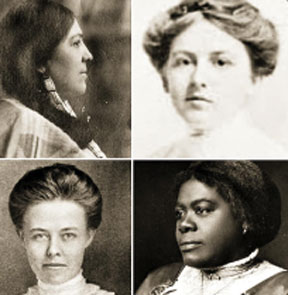 (Clockwise) 1. Marie Louise Bottineau Baldwin (1863-1952) b. Pembina, North Dakota
(Clockwise) 1. Marie Louise Bottineau Baldwin (1863-1952) b. Pembina, North Dakota
- Marjorie Stoneman Douglas (1890-1998)
- Minneapolis, Minnesota
- Mary McLeod Bethune (1880-1967)
- Mayesville, South Carolina
- Ivy Julia Cromartie Stranahan (1881-1971)
- White Springs, Florida
Mayor of Lauderdale Lakes
The women suffrage movement not only gave women the right to vote but created the opportunity for us to walk through other doors knowing we are equally qualified and should be paid fair wages.
I must speak to the city of Lauderdale Lakes with an all-female commission, a professional staff and department head led by female. I know on whose shoulder I stand. So much more to do and all of us can make a difference in our own way. Broward County we are ready.
Former Broward County Supervisor Elections
I commend the women who persevered through their efforts to obtain the right to vote a full century ago. Although the access was not fully inclusive for all women along racial lines, it is noted that Black women, upon receiving this most valued right to vote, jumped into action and remained activists in the election and voting process.
It is fitting that I mention the acceleration of Kamala Harris, the newly announced nominee for Vice President of the United States of America. A century ago, this earned honor would not have been possible for her. Senator Harris, a member of the Alpha Kappa Alpha Sorority, gave a shout out to her sorority, and also mentioned the organizations of the Divine Nine, the overarching connection between all of the Greek Letter Organizations which are active in their collaboration regarding the importance of voting. +
Greek letter organizations have a long and successful history of working on the ground to energize the community to participate in the vote. The members of Delta Sigma Theta selected the voting process as their first public act when they marched as a part of the Women’s Suffrage Movement in 1913. Many members and the current and Past National Presidents of Delta expressed our continued strong commitment to voting when we crossed the historical Edmond G. Pettis Bridge, Selma Alabama.
VOTING HAS NEVER BEEN MORE CRITICAL THAN IT IS TODAY. VOTING IS LIKE BREATHING: IT I S CRITICAL TO OUR QUALITY OF LIFE. VOTE !
100th Commemoration of Women’s Suffrage
Florida’s 18th Lieutenant Governor
As a young Black girl I looked at the year 2020 as some futuristic time that I may never see, let alone exercising my right to vote and becoming the first Black woman elected as Lieutenant Governor in the former segregationist state of Florida. Now 2020 is upon us and I am fortunate to be alive to see a century of voting accomplishments made by women in the United Sates.
Because of the boldness and fortitude of Elizabeth Cady Stanton and Susan B. Anthony, on August 18, 1920, the 19th Amendment to the Constitution was finally ratified, giving women in America the right to vote. This feat came about 50 years after the ratification of the 15th Amendment guaranteeing Black men the right to vote.
In November 2, 1920, more than 8 million women across the United States voted in elections for the first time. Move forward to 2020, the 100th Commemoration of Women Suffrage, women have become a critical voting bloc that every presidential and gubernatorial candidate vies to get.
Women’s issues are no longer relegated to the back seat. Both major party platforms must include and have a plan of action to address issues important to women: safety and security, gun control, education, health, environment, jobs and the economy. Black women voters have increased their importance in the political landscape and have become a force to be reckoned with. If it wasn’t for Black women raising their voices to bring awareness for criminal justice reform, lawmakers would not have made policy changes to bring about judicial fairness.
In 2018 Democrats saw an unprecedented number of female candidates running and winning seats in the Congress making history of having over 100 candidates win seats in the Congress. In 2020 Republicans have seen an unprecedented increase of over 280% female candidates running for Congress.
At one time a critical voting bloc, Black voters, were cultivated by both political parties. As Blacks became reliable Democrat voters, political strategist saw greater opportunities to cultivate women voters. And from election to election, all political parties cater to their needs and issues. This political clout obtained by women voters, and in particular Black women voters, have come a long way since 1920. Women voters will continue to be a force to be reckoned with for many years to come. The fight for a universal-suffrage amendment to the U.S. Constitution has paid off.
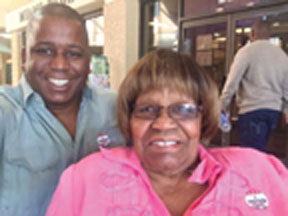 Mother and son – Congresswoman Carrie Meek and U.S. Representative Kendrick Meek
Mother and son – Congresswoman Carrie Meek and U.S. Representative Kendrick Meek
Women in this country have struggled for quality for hundreds of years, and that battle continues today. I watch my own mother, Congresswoman Carrie Meek. She worked her way through a male-dominated working environment in the public policy arena. When she arrived at the Florida Legislature in 1979 after the unfortunate accidental death of another, shero State Representative Gwendolyn Chery. The equal rights amendment was being debated in the Florida House of Representatives. She fought hard for the passage of the legislation. The fight for equality for Black women in America has been an uphill battle. But as Carrie Meek would say, “It’s a battle worth having.”
“I am inspired by the work of Black women who have fought for not only voting rights but representation within the political arena. Their contributions have been pivotal in pushing to make our country live out the high ideas that it purports. From past and present national leaders like Ida B. Wells, Mary Church Terrell, Ella Baker, Fannie Lou Hamer, Shirley Chisholm, to our local leaders like Eula Johnson, Margaret Cato Roach, Marsha Ellison, and Jasmen Rogers Shaw, all of these voices have been critical in making sure Black women have a seat at the table and that voice is heard and valued.”


